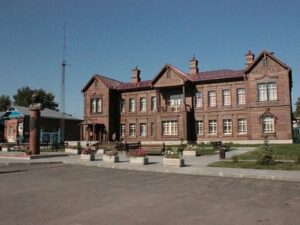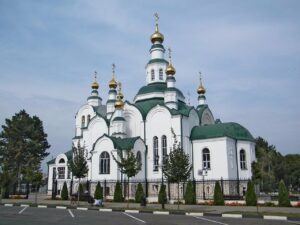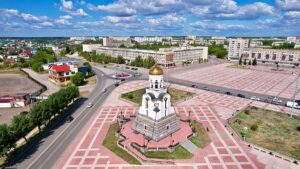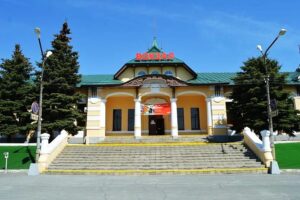Sochi, Russia: A Comprehensive Overview

Introduction
Sochi, often referred to as the “Russian Riviera,” is a unique city nestled on the northeastern coast of the Black Sea in the Krasnodar Krai region of Russia. Known for its subtropical climate, stunning beaches, and majestic Caucasus Mountains, Sochi is a premier destination for both domestic and international tourists. The city’s appeal was significantly boosted when it hosted the 2014 Winter Olympics, showcasing its blend of natural beauty, modern infrastructure, and rich cultural heritage.
Historical Background
Ancient History
The area now known as Sochi has been inhabited since ancient times. Archaeological evidence suggests that the region was home to various indigenous tribes, including the Maeotae and the Sindi. These tribes were part of the greater Caucasian cultural and ethnic mosaic, engaging in trade and cultural exchange with neighboring regions.
Roman and Byzantine Influence
During the Roman and Byzantine eras, the region was an important part of the northern frontier. Roman and Byzantine ruins, including fortifications and bathhouses, can still be found in the area, providing a glimpse into the historical significance of Sochi as a strategic coastal settlement.
Ottoman Period
The region came under Ottoman control in the 15th century, further diversifying its cultural and historical tapestry. The Ottomans established forts and trading posts along the coast, and the influence of Turkish culture and architecture can still be observed in the region.
Russian Empire
Sochi became part of the Russian Empire in the early 19th century following the Russo-Turkish War. The Treaty of Adrianople (1829) marked the beginning of Russian dominance in the region. The construction of the Black Sea coastal highway and the establishment of a military outpost marked the city’s strategic importance. In 1838, the Russian Empire formally founded the city of Sochi.
Geography and Climate
Sochi is situated in a unique geographical location that contributes to its diverse climate and natural beauty. The city stretches approximately 145 kilometers along the Black Sea coast, making it one of the longest cities in Russia.
Climate
Sochi enjoys a humid subtropical climate, characterized by mild, wet winters and hot, humid summers. The average temperature in January is around 6°C (43°F), while in July, it can reach up to 28°C (82°F). The city’s climate is influenced by its proximity to the Black Sea and the Caucasus Mountains, creating a microclimate that is rare for Russia.
Demographics
Sochi has a population of approximately 500,000 residents, making it one of the larger cities in the Krasnodar Krai region. The population is predominantly Russian, with significant communities of Armenians, Georgians, and Greeks.
Ethnic Composition
The city’s multicultural population reflects its history as a crossroads of various civilizations. This diversity is evident in the local cuisine, festivals, and cultural traditions, which draw from Russian, Armenian, Georgian, and Greek influences.
Economy
Sochi’s economy is diverse, with tourism, agriculture, and trade being the primary sectors. The city’s strategic location on the Black Sea and its status as a premier tourist destination have driven economic growth and development.
Tourism
Tourism is the cornerstone of Sochi’s economy. The city’s natural beauty, combined with its modern infrastructure and numerous attractions, draws millions of visitors each year. Key attractions include the Black Sea beaches, the Caucasus Mountains, and various cultural and historical sites.
Winter Sports and the 2014 Winter Olympics
The 2014 Winter Olympics had a transformative impact on Sochi’s economy and infrastructure. Massive investments were made to build new sports facilities, hotels, and transportation networks. The Rosa Khutor Alpine Resort, the Sochi Olympic Park, and the Fisht Olympic Stadium are some of the lasting legacies of the Olympics, attracting tourists for both winter and summer sports.
Health and Wellness Tourism
Sochi is also known for its health and wellness tourism, with numerous sanatoriums and spas offering treatments based on the region’s natural mineral springs and favorable climate. These facilities cater to both domestic and international tourists seeking relaxation and medical treatments.
Agriculture
Agriculture plays a significant role in Sochi’s economy, with the region known for its production of tea, fruits, and vegetables. The subtropical climate allows for the cultivation of unique crops not typically found in other parts of Russia. Sochi tea, in particular, is famous for being the northernmost tea in the world.
Trade and Transportation
Sochi’s port is a critical hub for maritime trade, handling both cargo and passenger traffic. The city’s transportation infrastructure, including the Sochi International Airport and an extensive network of roads and railways, ensures efficient connectivity with other parts of Russia and international destinations.
Culture and Society
Sochi is a cultural melting pot with a vibrant arts scene, diverse traditions, and a rich historical heritage. The city’s cultural institutions, festivals, and architecture reflect its multicultural identity.
Festivals and Events
Sochi hosts numerous festivals and events throughout the year, attracting both locals and tourists. Notable events include the Sochi International Film Festival, the New Wave music festival, and the Kinotavr film festival. These events showcase the city’s dynamic cultural life and contribute to its status as a cultural hub.
Architecture
Sochi’s architectural landscape is a mix of styles, reflecting its diverse history and modern development. The city’s landmarks include historical buildings, such as the Sochi Art Museum and the Winter Theatre, as well as contemporary structures like the Fisht Olympic Stadium and the Sochi Autodrom.
Religious Diversity
Sochi is home to various religious communities, including Russian Orthodox Christians, Muslims, Jews, and others. The city’s religious architecture includes churches, mosques, and synagogues, each contributing to Sochi’s spiritual and cultural diversity.
Landmarks and Attractions
Sochi offers a wealth of landmarks and attractions that highlight its natural beauty, historical significance, and cultural vibrancy.
Beaches and the Black Sea Coast
Sochi’s beaches are among its most popular attractions, drawing visitors to the city’s sunny shores. The Riviera Beach, with its well-maintained facilities and lively atmosphere, is a favorite among tourists. The quieter beaches in Lazarevskoye and Adler offer a more relaxed experience.
Caucasus Mountains
The nearby Caucasus Mountains provide opportunities for outdoor activities, including hiking, skiing, and snowboarding. The Rosa Khutor Alpine Resort, developed for the 2014 Winter Olympics, is a world-class destination for winter sports enthusiasts.
Sochi Arboretum
The Sochi Arboretum is a botanical garden that showcases the region’s diverse flora. Visitors can explore various themed gardens, including subtropical, Mediterranean, and East Asian sections, and enjoy panoramic views of the city and the Black Sea.
Stalin’s Dacha
Stalin’s Dacha, located in the Matsesta district, is a historical landmark that offers insight into the Soviet era. The well-preserved residence of Joseph Stalin is now a museum, featuring original furnishings and personal artifacts.
Education and Science
Sochi is an educational and scientific center, with several higher education institutions and research centers.
Sochi State University
Sochi State University is the largest higher education institution in the city, offering a wide range of undergraduate and graduate programs. The university is known for its research in tourism, hospitality, and environmental studies.
Scientific Research
Sochi is home to various research institutions, including the Research Institute of Mountain Forestry and Forest Ecology and the Russian Academy of Sciences’ Southern Scientific Center. These institutions conduct research in fields such as environmental science, forestry, and marine biology.
Transportation
Sochi is well-connected by various modes of transportation, making it an accessible destination for travelers and an important transit point for goods.
Air Transport
Sochi International Airport is one of the busiest airports in Russia, providing regular flights to major domestic and international destinations. The airport’s modern facilities and services ensure convenient air travel for both residents and visitors.
Rail Transport
Sochi’s railway station is a key hub on the North Caucasus Railway, providing connections to other cities and towns in the region. The city’s rail network facilitates the efficient movement of goods and passengers.
Road Transport
Sochi is connected to other parts of Russia by a network of federal and regional highways. The city’s road infrastructure is well-developed, ensuring efficient transportation within and beyond the city. Buses and taxis are common modes of local transportation.
Tourism
Tourism is a vital sector in Sochi, with visitors drawn to its natural beauty, cultural institutions, and modern amenities.
Summer Tourism
During the summer months, Sochi’s beaches and coastal attractions are the main draw for tourists. The city’s numerous resorts, hotels, and recreational facilities cater to visitors seeking sun, sea, and relaxation.
Winter Tourism
Sochi’s winter tourism is centered around the Caucasus Mountains and the world-class ski resorts developed for the 2014 Winter Olympics. The Rosa Khutor Alpine Resort, with its extensive ski slopes and modern amenities, attracts winter sports enthusiasts from around the world.
Challenges and Future Prospects
Despite its many strengths, Sochi faces several challenges that impact its development and quality of life.
Economic Diversification
While tourism is the cornerstone of Sochi’s economy, there is a need for further diversification to ensure sustainable growth. Promoting sectors like technology, education, and agriculture can help create a more resilient economy.
Environmental Concerns
Sochi, like many coastal cities, faces environmental challenges, including coastal erosion, water pollution, and the impact of climate change. Efforts to protect the natural environment and implement sustainable practices in tourism and urban development are crucial.
Conclusion
Sochi is a city of extraordinary beauty and cultural richness, where the legacy of ancient civilizations meets modern development. Its strategic location, diverse economy, and vibrant cultural scene make it a fascinating destination for travelers and an important regional center. As Sochi continues to grow and evolve, it remains a testament to the enduring spirit and resilience of its people.




